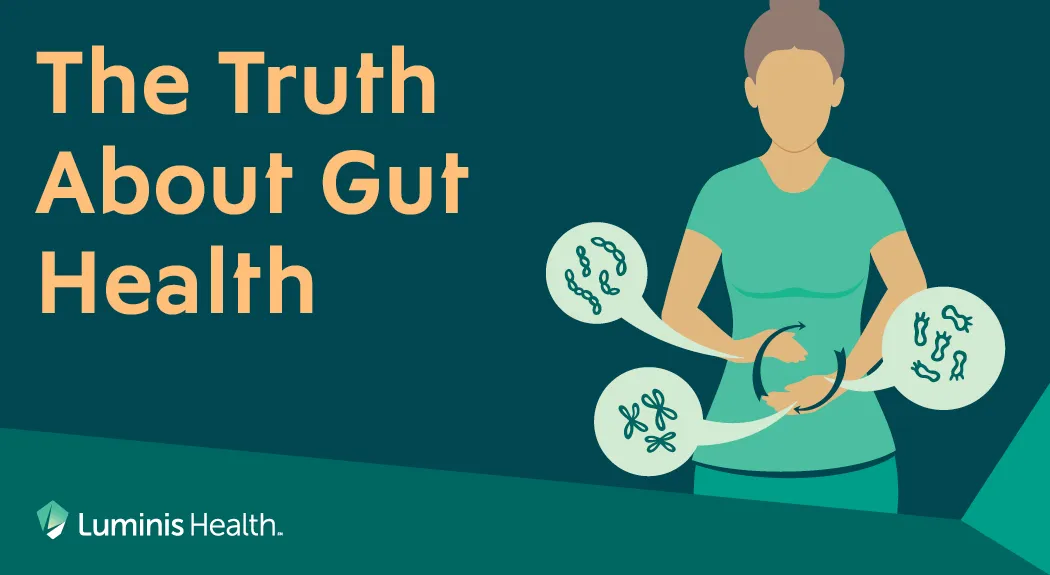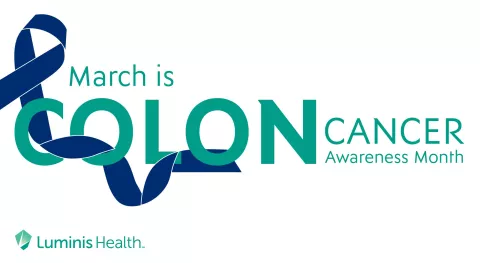
Your gut can tell you a lot about your overall well-being since it plays a crucial role in digestion, immunity and even mental health. But does that mean you need supplements or vitamins designed to improve gut health? That depends on factors like your diet and lifestyle, and whether you’re facing digestive issues that feel disruptive to your everyday activities.
Let’s explore how your gut works, why it matters, and what you can do to keep it healthy.
Understanding Gut Health
Your gastrointestinal (GI) tract includes your esophagus, stomach and intestines. When you eat, these organs work together to digest food, absorb essential nutrients and eliminate waste.
Trillions of microorganisms—including bacteria, fungi and even parasites—live in your gut and play a key role in these processes. The composition of your gut microbiome is affected by many factors, including your diet, medications, genetics and age.
Signs of a Healthy Gut
A well-balanced gut microbiome often leads to:
- Clear skin
- Regular and comfortable bowel movements
- Steady energy levels
However, frequent digestive issues like bloating, cramps, constipation, diarrhea, heartburn or nausea, may signal an imbalance. Other symptoms linked to poor gut health include:
- Acid reflux and heartburn
- Allergies and skin rashes
- Autoimmune issues
- Chronic bloating or constipation
- Unexplained fatigue
- Unexplained weight changes
Natural Ways to Improve Gut Health
Your daily habits can significantly impact your gut health. Try these natural strategies to keep your digestive system in top shape:
- Eat a variety of fruits and vegetables
- Eat slowly to support digestion
- Exercise regularly
- Manage stress
- Prioritize quality sleep
- Reduce ultra-processed foods
- Stay hydrated
- Use antibiotics only when necessary
Can Prebiotics and Probiotics Help?
Ongoing research suggests that prebiotics and probiotics, which can either be found naturally in certain foods or added to your routine with dietary supplements, can benefit gut health in some cases. However, because not everyone needs supplements—and because the Food and Drug Administration (FDA) doesn’t regulate them—it’s best to consult your primary care doctor before adding prebiotics or probiotics to your routine.
A doctor can help you navigate the existing research and keep a pulse on new findings, as well help you decide if any of these gut health remedies are right for you.
How Do Prebiotics Work?
Prebiotics serve as food for probiotics. They occur naturally in many high-fiber foods, such as:
- Bananas
- Beans
- Berries
- Garlic
- Oats
- Onions
But while prebiotic supplements like inulin can enhance gut health, they can also be costly.
How Do Probiotics Work?
Probiotics are live bacteria and yeasts that support digestive health. When you consume probiotics through food or supplements, you’re reinforcing your gut’s natural microbiome.
Foods rich in probiotics include:
- Certain cheeses
- Fermented foods like kimchi, miso, and pickles
- Sourdough bread
- Yogurt (with live active cultures)
Look for labels that mention “live active cultures” to ensure you’re getting beneficial bacteria. Strains like Lactobacillus and Bifidobacterium are among the most effective, according to current research, and probiotics with added B12 can further boost your metabolism, energy, and digestion.
With so many choices though, finding the right probiotic can be overwhelming. Your doctor can help determine whether a probiotic is right for you, and which best meets your needs.
Here When You Need Us
If you believe your gut health needs improvement, your next primary care visit is a great time to discuss your concerns with your doctor. Together, you can decide your next steps, including any dietary, lifestyle or supplement changes, and monitor your progress over time.
If you don’t have an established relationship with a primary care physician, find a Luminis Health doctor who’s ready to help. Visit Luminis.Health/PrimaryCare to book an appointment.
 Dr. Ijeoma Nwogu is a primary care physician at Luminis Health who sees patients in Greenbelt, Bowie and Lanham, Maryland.
Dr. Ijeoma Nwogu is a primary care physician at Luminis Health who sees patients in Greenbelt, Bowie and Lanham, Maryland.



